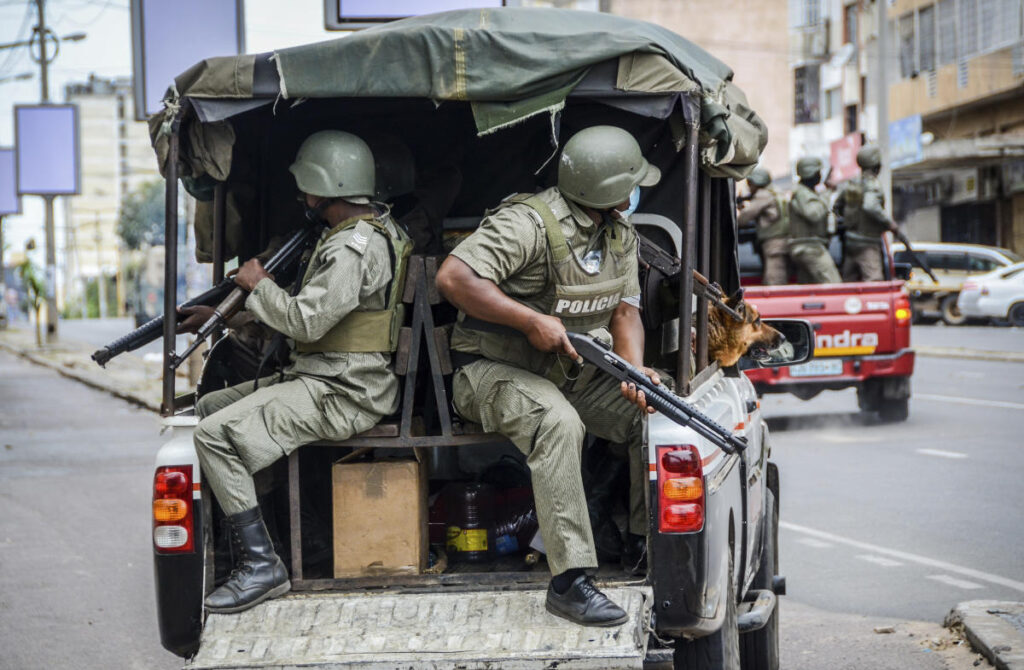Mozambique has been gripped by protests and violence following the disputed outcomes of the October 9 elections, where the ruling party Frelimo’s candidate, Daniel Chapo, was declared the winner. The aftermath has seen reported casualties exceeding 30 deaths during the unrest, raising concerns about political stability and governance in the region. Venancio Mondlane, the independent candidate who secured 20% of the national vote, has rejected the election results and is advocating for nationwide protests. The ongoing situation in Mozambique is poised to be an important topic at the upcoming Southern African Development Community (SADC) summit, highlighting the wider implications of election-related violence on regional peace and governance.
While some Southern African nations have successfully conducted free and fair elections recently, the situation in Mozambique sharply contrasts with these democratic successes. This year, South Africa and Botswana have both seen significant shifts in their political landscapes, with Botswana’s ruling party ousted after a historical 58-year tenure and South Africa grappling with a loss of parliamentary majority for the first time since 1994. Whereas South Africa maintained a democratic transition with coalition governance, Mozambique has again been marred by allegations of electoral malpractice. The European Union observer mission raised concerns regarding irregularities during the elections, including manipulation of results, further complicating Mozambique’s political environment that has been tainted by past controversies surrounding the Frelimo party.
The impact of Mozambique’s instability reverberates beyond its borders, influencing regional trade and economic dynamics within Southern Africa. As a strategic hub that shares borders with several countries including South Africa, Tanzania, and Zimbabwe, Mozambique plays a vital role in the region’s trade, particularly concerning mineral exports. The recent unrest has prompted South Africa to close its Lebombo border, disrupting vital trade routes. This closure resulted in logistical challenges for freight transportation, including significant economic losses estimated at R10 million ($555,177) per day to South Africa’s economy. Notably, over half of South Africa’s chrome ore exports are transported via Mozambique’s Maputo harbour, making the resolution of Mozambique’s political turmoil critical to maintaining regional trade relations.
The quest for political stability in Mozambique cannot be discussed without acknowledging its tumultuous history marked by a brutal 15-year civil war. The struggle between the Frelimo government and the rebel group Renamo left deep-rooted scars on the country’s political fabric. Since transitioning to democracy in 1994, Mozambique has faced continuous political turbulence, evidenced by the recent violence as well as the ongoing conflicts with insurgent groups in the northern Cabo Delgado province. These insurgent activities have displaced approximately 1.3 million people, exacerbating humanitarian crises at both local and regional levels. As communities struggle to rebuild amidst persistent threats and economic challenges, any further instability is likely to lead to increased migration pressures into neighboring countries.
The international community has expressed concern over the potential for Mozambique’s unrest to destabilize the Southern African region. Given the country’s essential role in regional economic dynamics and its historical context of conflict, the need for effective governance and credible institutions is paramount for long-term stability. Neighboring countries, already contending with various socio-economic challenges, may face increasing difficulties if the violence escalates or if political tensions ripple across borders. The SADC summit may provide a platform for regional leaders to discuss collective strategies aimed at restoring stability while ensuring future elections are conducted fairly and transparently.
Ultimately, the situation in Mozambique is a reflection of broader challenges faced by several countries in Southern Africa regarding democratic governance and the rule of law. The unfolding events post-election point to the pressing need for renewed dialogues surrounding electoral reforms, political accountability, and enhanced civic engagement in the region. The future of Mozambique—and, by extension, Southern Africa—may heavily rely on the extent to which both the government and opposition parties can navigate their differences, reconcile their disputes, and foster a more inclusive political climate that prioritizes the welfare of all citizens.

